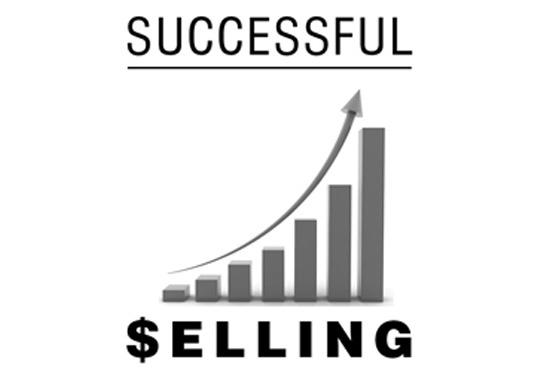Successful Selling - August/September 2010
By Lisbeth Calandrino
Customers often have trouble making decisions, especially with regard to large purchases. A decision that the customer believes is a good idea in the showroom can turn into a bad idea when they walk out the door. Consider the customer who finds an area rug, tells the salesperson that they will be back in an hour to claim it, and is never heard from again. Could this loss have been prevented by a good salesperson? The answer is both yes and no. There are salespeople who believe that the sale is made when the customer says “yes,” and there are those who know that a sale isn’t final until the customer pays for the product and takes it home. The expression “Don’t count your chickens before they hatch” has real merit in the sales world.
That saying originates from one of Aesop’s fables, “The Milkmaid and her Pail.” The milkmaid is on the way to market with a pail of milk balanced on her head and is daydreaming about the eggs she will buy when she sells the milk. These eggs will hatch into chickens and will eventually provide the money that she needs to purchase a beautiful gown. Of course, the gown is the lead-in to the new love. As the milkmaid is walking, she tosses her head, and the milk is lost. Her mother reminds her that she shouldn’t have counted her chickens before they were hatched.
Why do customers often have trouble making decisions? Fear and guilt are two powerful reasons: fear that they will make the wrong decision, which will lead to regret, or guilt that they shouldn’t spend the money. The key for the salesperson is to realize that many customers experience buyer’s remorse even before they plunk down their dollars. Not realizing this is like being the milkmaid and counting those chickens.
Whether the economy is good or bad, customers are in your store to consider making a purchase. The purchase may not be made today, but, unless you inquire about their intentions, you will never know when they are planning to buy. The confident salesperson asks questions about the customer’s wants and concerns and then formulates a sales strategy. If, previous to the recession, your sales strategy was to push, why not push now? If you are the type that gently guides the buyer towards a sale, why not continue to guide? Don’t abandon your strengths as a salesperson as a result of the customer’s apprehension. External factors such as the economy shouldn’t determine how you approach the customer. There will always be something that will keep the customer in limbo if you, as a salesperson, buy into their indecision.
Salespeople seem to be most disturbed by the customer with price concerns. And chances are, the customer may be able to find a cheaper price. But if you have fresh, fashionable goods, quality installation and fair pricing—and communicate these benefits clearly—the customer is likely to see the advantages as well. In tough times, salespeople feel pressured to drop prices, believing this is the only way that they can make the sale. Dropping prices has serious long-term effects on a business. As a salesperson, you should always set a profit margin and stay within that boundary. Remember, cash flow is not the same as profit, and eventually a price-dropping mindset will put a store out of business.
If customers express concern about the unstable economy, remind them that there is no way to guarantee the future, only the guarantee that the good decision they make today will positively impact their future. If they choose quality flooring, it will continue to look good and maintain well for years to come. Therefore, the buy is a wise decision and should not be feared. To remind customers of this is the job of a good salesperson.
Before working to remove the customer’s fear, however, you will have to build a rapport with them. One way to build rapport is to match the customer’s concerns: “Yes, I understand why you might feel that way” or “I agree with you. One never knows about the economy, but a new floor will increase the value of your home while you are enjoying it. What stops you from making the investment?”. Remind the customer that there is no way to predict the future, but there is a way to predict how the product they may purchase will enhance the future. A quality product will last. It makes just as much sense to spend money on a quality floor during a recession as it does when times are good. A sound investment is a sound investment, regardless of what is happening on the stock exchange.
Once a customer agrees with you on these terms, outline the product’s features that will benefit the customer. This is where product knowledge is imperative. What makes your product different? Why do people choose your product? What is the environmental impact of the product you’re selling? A good salesperson asks tough questions and then seeks to provide evidence to support the emotional decision.
One way to positively affect a customer’s thought process about buying is to change the way you talk about buying. Sell the product as an investment rather than a purchase. Investment indicates a return on the money spent; a purchase does not have the same implication.
Above all, be real with your customers. Show genuine interest in their concerns and build the trust necessary for the customer to make a decision. Don’t be afraid to ask tough questions and stay in touch with the customer if they leave. It’s been said the consistency is better than good salesmanship. I prefer to think that consistency is good salesmanship. If you think the same way, you will build better relationships with customers and won’t have to worry about the spilled milk.
Copyright 2010 Floor Focus
